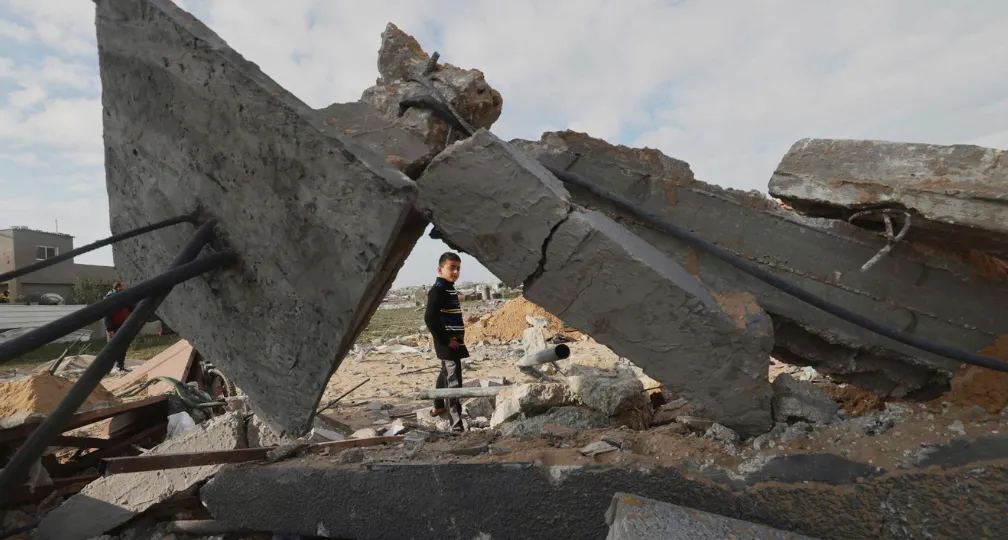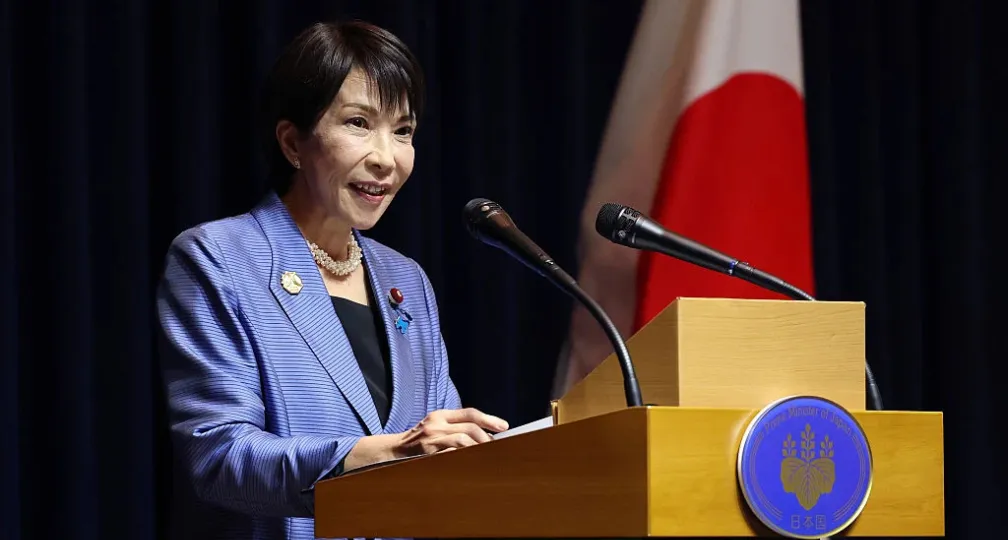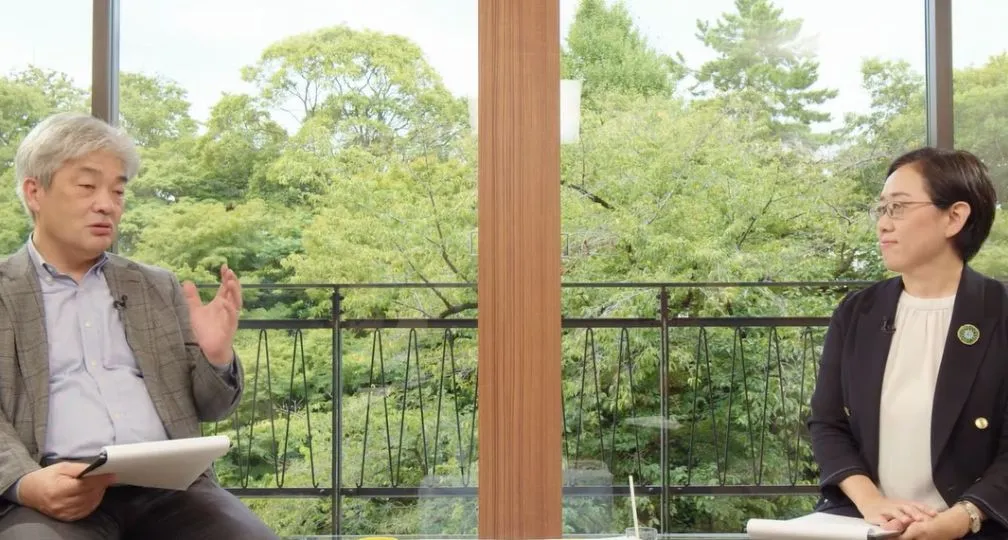How the Israel-Hamas war is changing the international security order

In the early morning of Oct. 7, Hamas, a militant organization that effectively controls the Gaza Strip, launched a full-fledged surprise attack on southern Israel, killing more than 1,100 people, including civilians, and taking some 250 people hostage. The attacks, which Hamas called Operation Al-Aqsa Flood, had been meticulously planned for over a year, and some of the militants committed atrocities including sexual violence, pillaging, arson and beheading.
Israel was caught off guard, suffering severe damage and a historic high number of casualties. The Israeli government immediately declared war on Hamas. Israel launched aerial strikes and bombardments against Gaza, cut off internet and mobile phone services almost completely, and then, on Oct. 27, began a large-scale ground offensive against the territory with the aim of getting hostages back and eliminating Hamas. Five months after the launch of the ground offensive, as a result of relentless, indiscriminate attacks on civilian areas and women, children and private facilities, the situation in Gaza, which had already been suffering from a serious humanitarian crisis even before the war, is deteriorating further.
As of Feb. 20, nearly 30,000 Palestinians had been killed and almost 70,000 injured, according to the United Nations Office for the Coordination of Humanitarian Affairs. On the other hand, The Wall Street Journal reported on Jan. 21 — quoting U.S. intelligence agencies’ estimates — that Israeli forces had killed 20% to 30% of Hamas’ fighters, a toll that so far falls short of Israel’s goal of destroying the group.
Background to the war
It is still unclear why Hamas conducted such a large-scale attack at that time. However, we can assume a number of reasons based on the situation in which Hamas and the people of Gaza and the West Bank had been placed before the war.
Firstly, the West Bank was seeing a surge in Israeli settlement activity and a rise in violence by settlers. In 2023, the number of newly built settler housing units in the West Bank reached its highest in around a decade, and the United Nations warned of a dramatic rise in attacks by settlers on Palestinian people and property. Days before the Hamas attack, dozens of Israeli settlers forced their way into the flash point Al-Aqsa Mosque complex in occupied East Jerusalem during Sukkot, a seven-day Jewish harvest-time holiday. People of the occupied territories were frustrated over the situation and tensions had been intensifying.
Secondly, Israel had been letting its guard down. Ever since Hamas took effective control of Gaza in 2007, Israeli authorities have been imposing a blockade on the city, and Israel’s repeated military offensives have caused cumulative damage to people’s already dire living conditions. Particularly following Israel’s Operation Protective Edge, launched in 2014 in response to increasing rocket and mortar fire from Gaza, Israel believed it had successfully contained Hamas through a strategy described by analysts as “mowing the grass” — a metaphor used to imply that Hamas was like weeds that needed to be cut back regularly to prevent them from growing wild. In recent years, the attention of Israel and the international community has been focused mostly on the occupied West Bank, with Gaza having been little mentioned. Hamas wanted to change the rules of the game, albeit forcefully.
Thirdly, Hamas aimed to stop progress in the normalization of relations between Israel and neighboring Arab countries since the Abraham Accords were signed by Israel, the United Arab Emirates and Bahrain in September 2020. Such normalization moves were nothing but a betrayal in the eyes of people living in Gaza. By reigniting a bloody conflict with Israel and displaying Israel’s inhumanity to the Arab world, Hamas attempted to drive a wedge between Israel and Arab countries, as well as between Arab governments and their people.
Fourthly, Gazan public support for Hamas was low before the war, and its presence in the so-called “Axis of Resistance,” a loose-knit network of autonomous militant Islamist groups backed by Iran, has been low. Prior to the Oct. 7 attacks, nearly 70% of Gazans said that they had no trust in the long-standing Hamas-led government, according to a widely cited poll conducted by the Arab Barometer. Meanwhile, in the Syrian civil war that started in 2011, Hamas supported the anti-government forces and its militants directly engaged in fighting in Syria, quickly leading to the souring of the relationship between the group and the allies of Syrian President Bashar al-Assad’s administration — Iran and Hezbollah, a Shiite Muslim political party and militant group based in Lebanon.
Hamas’ relations with Iran and Hezbollah had been improving gradually after a change in its leadership in 2017, but the distrust between them never disappeared completely. Hamas has learned through past experience that if it engages in an armed conflict with Israel, it can gain more support or assistance, even temporarily. The latest offensive can be interpreted as Hamas’ attempt at a counteroffensive to overturn its disadvantageous situation.
Fifthly, there was a growing opposition to Israeli Prime Minister Benjamin Netanyahu’s administration among the Israeli people. As the Israeli parliament ratified a contentious justice reform bill sought by the Netanyahu administration in July, opponents of the amendment organized mass anti-government demonstrations, and thousands took to the streets, particularly in Tel Aviv. The government of Israel’s push to overhaul the judiciary led to widespread protests and cleaved deeper rifts within the nation’s society.
Voices of dissent also arose from within the military, with hundreds of reservists declaring they would not report for duty anymore. Senior military officials were increasingly alarmed at such a situation, as it could harm the military’s effectiveness and deterrence capabilities. Hamas saw it as a good opportunity.
However, consequently, while Hamas succeeded in hampering the normalization of ties between Israel and Arab countries — particularly between Israel and Saudi Arabia, which was its ultimate goal — it paid too high a price. The true intentions of Hamas’ attacks on Israel at this time remain unclear. At the same time, careful assessments are needed over why Israel’s intelligence services failed to predict and prevent the attacks, although it is apparent that they were overconfident and lacked vigilance.
Impact on international security order
On Oct. 8, a day after Hamas struck Israel, The Wall Street Journal reported that officers from Iran’s Islamic Revolutionary Guard Corps had helped to plan the attack and gave the green light for the assault. But no clear evidence of Tehran’s involvement has been found to this day.
In view of official announcements from the United States and Iran, as well as Iran’s relationship with Hamas up to this point, there seems to be little possibility of Tehran instructing Hamas to launch the attacks. There is little merit to Iran engaging in a war with Israel now. The Axis of Resistance is nothing but a united front based on common interests, and it is not controlled by Iran nor is it an organically connected monolithic group.
Even so, battlefronts are expanding beyond Gaza. In December and January, key Iranian and Hamas key figures who had been responsible for coordinating the military alliance within the Axis of Resistance were killed outside Gaza in apparent Israeli airstrikes. While Israel did not claim responsibility for the blasts, the attacks indicated that places other than Gaza can also be targeted, and at the same time suggested that Israel must have sought to draw a “red line” for Iran and drive a wedge between forces of the Axis of Resistance.
Since then, attacks and counterattacks have been taking place in Syria and Iraq between the U.S. military and a group of Iran-backed militias known as the Islamic Resistance in Iraq, causing many casualties on both sides. At this point, there are no direct military confrontations between the U.S. and Iran, or between Israel and Iran, and all sides have been carefully controlling escalations to prevent them from crossing the red line of launching direct attacks on the other’s territories.
Nevertheless, contrary to all camps’ intentions, the risk of accidental conflict or miscalculated military confrontation is rising more than ever. Furthermore, there are concerns over the fact that Israel has displayed only ambiguous plans for the future governance of Gaza once its war with Hamas is over. Hamas has been seeking a package deal that links an agreement to release hostages and prisoners with the permanent halt of fighting, a complete withdrawal of Israel forces from Gaza and a guarantee of its continued reign over the territory. But Israel has kept on refusing such demands.
However, the Netanyahu administration does not seem to have a specific strategic outlook on tackling a number of challenges: whether it is really possible to exterminate every Hamas militant — most of whom cannot be distinguished from civilians — hiding deep within an extensive network of underground tunnels; how Israel is going to take hostages back; and who will govern Gaza after Hamas. If the damage continues to expand further, it will become difficult for the U.S. to continue showing full support for Israel.
Israeli society is deeply divided over what should be prioritized, with some calling on the government to negotiate the release of hostages and a cease-fire, and others hoping the offensive in Gaza will continue until Hamas is destroyed. The Middle East is a region with large reserves of crude oil and natural gas, situated at a strategic intersection linking Asia, Africa and Europe. It contains a major pilgrimage site for Jews, Christians and Muslims, and at the same time is one of the most unstable regions in the world. As that is the case, conflicts in the region always involve superpowers, having a great influence not only on regional order, but on international security order as a whole.
If the attacks continue in the latest conflict, the people in Gaza are certain to face the worst humanitarian situation. At the same time, the divide within the international community over the conflict will become even more serious.
What Japan can do as a state to solve the situation is limited, as it does not have diplomatic leverage to exert influence on political developments in the Middle East. Still, it is important for Tokyo, one of the democracies that support a rules-based international order, to continue providing aid through international institutions and keep urging countries concerned to immediately stop the violence.
The U.S. — a liberal hegemonic country and the only state that can exert pressure on Israel — must strongly call for the protection of human rights and compliance with international norms. Even if Washington continues to persistently support Israel, Japan should not fear disagreeing with the U.S.
[Note] This article was posted to the Japan Times on April 2, 2024:
https://www.japantimes.co.jp/commentary/2024/04/02/world/israel-hamas-international-security/
*The affiliation is at the time of publication of the original article in Japanese.
(Photo Credit: AFP / Aflo)

Geoeconomic Briefing
Geoeconomic Briefing is a series featuring researchers at the IOG focused on Japan’s challenges in that field. It also provides analyses of the state of the world and trade risks, as well as technological and industrial structures (Editor-in-chief: Dr. Kazuto Suzuki, Director, Institute of Geoeconomics (IOG); Professor, The University of Tokyo).
Disclaimer: The opinions expressed in Geoeconomic Briefing do not necessarily reflect those of the International House of Japan, Asia Pacific Initiative (API), the Institute of Geoeconomics (IOG) or any other organizations to which the author belongs.
-
 Orbán in the Public Eye: Anti-Ukraine Argument for Delegitimising Brussels2026.02.04
Orbán in the Public Eye: Anti-Ukraine Argument for Delegitimising Brussels2026.02.04 -
 Trump, Takaichi and Japan’s Strategic Crossroads2026.02.03
Trump, Takaichi and Japan’s Strategic Crossroads2026.02.03 -
 Analysis: When Is a Tariff Threat Not a Tariff Threat?2026.01.29
Analysis: When Is a Tariff Threat Not a Tariff Threat?2026.01.29 -
 Takaichi’s Strengths and the Need for ‘Strategic Signaling’2026.01.23
Takaichi’s Strengths and the Need for ‘Strategic Signaling’2026.01.23 -
 Takaichi’s Twin Challenges: Economic Growth and Security2026.01.13
Takaichi’s Twin Challenges: Economic Growth and Security2026.01.13
 Oil, Debt, and Dollars: The Geoeconomics of Venezuela2026.01.07
Oil, Debt, and Dollars: The Geoeconomics of Venezuela2026.01.07 It’s Now or Never: India’s Ambitious Reform Push2026.01.09
It’s Now or Never: India’s Ambitious Reform Push2026.01.09 Analysis: When Is a Tariff Threat Not a Tariff Threat?2026.01.29
Analysis: When Is a Tariff Threat Not a Tariff Threat?2026.01.29 Navigating Uncertainty in U.S. Space Policy: Decoding Elon Musk’s Influence2025.04.09
Navigating Uncertainty in U.S. Space Policy: Decoding Elon Musk’s Influence2025.04.09 The “Economic Security is National Security” Strategy2025.12.09
The “Economic Security is National Security” Strategy2025.12.09
















